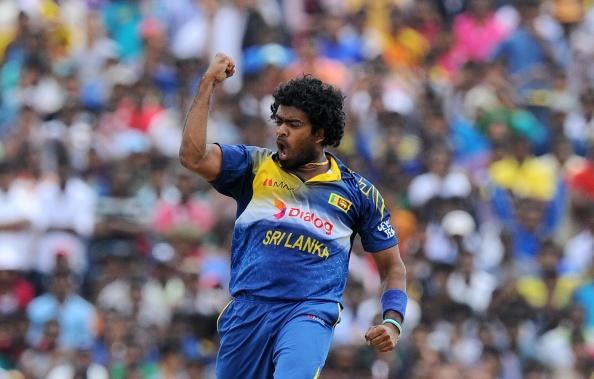
The World Cup is fast approaching and the scramble has already begun. The January 7 deadline for submission of the 15-member squad was missed by teams like Australia and West Indies and only now has a clearer picture emerged about the players who will battle for glory over the next two months.
– #Quiz360: WIN a six-month Target Gym membership
With the number of matches lined up right till the end of this month, it was no wonder that many teams struggled to finalise the 15 who can be entrusted with the difficult job and, more importantly, be fit when the action starts.
That’s because fair number of ‘big’ names pencilled in for the World Cup are nowhere near to being fit, as of now.
Let’s start with Sri Lanka. They have provisionally selected Lasith Malinga for the showpiece event, despite him missing the ODIs against India and England following surgery on his troubled left ankle in September.
It is hoped he will be fit by the time the last two one-dayers of the seven-match series against New Zealand come around. Even in such a scenario, there is no way Malinga can expect to be match fit and be fully capable of undergoing the rigours of a World Cup. But the selectors are willing to take a chance, simply because of his reputation and nothing more.
The Indians too have a couple of names in the squad with iffy fitness. All-rounder Ravindra Jadeja found a place in the side despite missing the Australian tour due to a shoulder injury.
He is not expected to be up and running at the start of the tri-series against Australia and England and, like Malinga, is likely to come into the picture only towards the end of the of series. Once again, a case of selectors going on hope instead of conviction.
Even Bhuvneshwar Kumar has some serious fitness issues, as became apparent during the Sydney Test where he completely lost his rhythm and bowled below the 120kmph mark. Granted ODIs are not as taxing, but one still needs to bowl 10 overs with a lot of purpose, and Kumar doesn’t look like a bowler who can do that right now.
The Proteas have gone down that road as well. The South African wicketkeeper Quinton de Kock suffered an ankle ligament tear and is set to miss at least the first two matches of the World Cup with captain AB de Villiers likely to fill in as wicketkeeper.
Australia are keeping their fingers crossed over the fitness of captain Michael Clarke. His long running back and hamstring troubles kept him out of the last three Test matches against India and he has been given a deadline of February 21 to prove his fitness so that he can lead at the World Cup. If not, replacements are in place to take over.
However, even if Clarke does prove his fitness and is able to run around comfortably, what about match fitness? Most of the teams who have picked such half-fit players are not taking match readiness into account.
For a tournament like the World Cup, where every member of the side has to be at his peak, team managements are taking a lot of risk in banking on these players.
One feels the team managements have been forced to stretch themselves to accommodate such players simply because they don’t have a lot of options in the first place.
Malinga is by far Sri Lanka’s most effective and experienced fast bowler, whose pace will be critical in Australia and New Zealand.
For India, Jadeja offers a reliable all-round option and since Stuart Binny and Akshar Patel haven’t played enough, his presence becomes crucial. For South Africa, de Kock has become an important member, blasting the bowlers at the top of the order and keeping wickets effectively – that reduced the load on de Villiers.

And even though the Aussies might have a proven skipper in George Bailey waiting in the wings, they know having the inspirational Clarke will make a huge difference because his leadership skills and ability to rally the troops is unparalleled.
Teams are worried about the availability of star players. But with the World Cup so close, all of them have tried to give as much time as possible to them in the hope that they will be functioning at 100 per cent by the time the tournament kicks off.
But a World Cup is not won by such last-minute arrangements. Only a team that has gelled well over the months leading up to the World Cup can expect to leave its mark.
If the team management, or fans, expect the recovering players to simply turn up and turn on the magic, they are mistaken. Maybe, one of them might click, but we have yet to see such players winning the World Cup. It would be better if teams get a bit more realistic about their expectations.